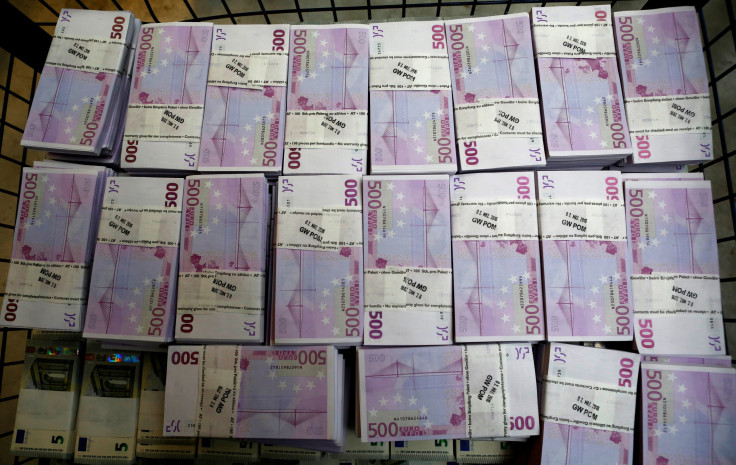500-Euro Note: European Central Bank Will Stop Printing Banknote Due To Crime Fears

It’s time to start saying goodbye to the 500-euro note.
The European Central Bank announced Tuesday it would permanently discontinue production of the bill although existing notes would remain legal tender and retain their value. It plans to stop issuing the 500-euro bill around the end of 2018, the bank said.
It did so after its governing council reviewed “the denominational structure” of the new Europa series, the second set of banknotes for the euro, and decided to stop producing its largest denomination as it took into account “concerns that this banknote could facilitate illicit activities,” the ECB said in a statement.
The bank plans to exclude the bill from the Europa series, which are more durable and more secure than the first series of euros. The latest bill in the Europa series, the 20-euro banknote, went into circulation Nov. 25. Smaller bills went into circulation in 2013 and 2014, and larger denominations like the 100- and 200-euro bills are slated to be introduced around the end of 2018.
The decision comes a few months after Lawrence Summers, a former U.S. treasury secretary and director of the White House’s National Economic Council, penned an op-ed titled “It’s time to kill the $100 bill.” In it, Summers highlighted a recent paper by Harvard researchers that he said made “a compelling case for stopping the issuance of high denomination notes like the 500-euro note and $100 bill or even withdrawing them from circulation.”
“Illicit activities are facilitated when $1 million weighs 2.2 pounds as with the 500-euro note rather than more than 50 pounds as would be the case if the $20 bill was the high denomination note,” he wrote in the op-ed published in the Washington Post in mid-February. “A moratorium on printing new high-denomination notes would make the world a better place,” he added, calling the European Union “the most important actor by far” given how the 500-euro note was “almost six times as valuable” as the $100 bill.
The European Central Bank had previously portrayed itself as skeptical of such claims linking large bills to crime. In early February, ECB Executive Board member Yves Mersch told reporters he wanted “substantiated evidence” that high-denomination notes facilitated crime, rather than mere “policemen who are having opinions on this matter.”
© Copyright IBTimes 2024. All rights reserved.






















